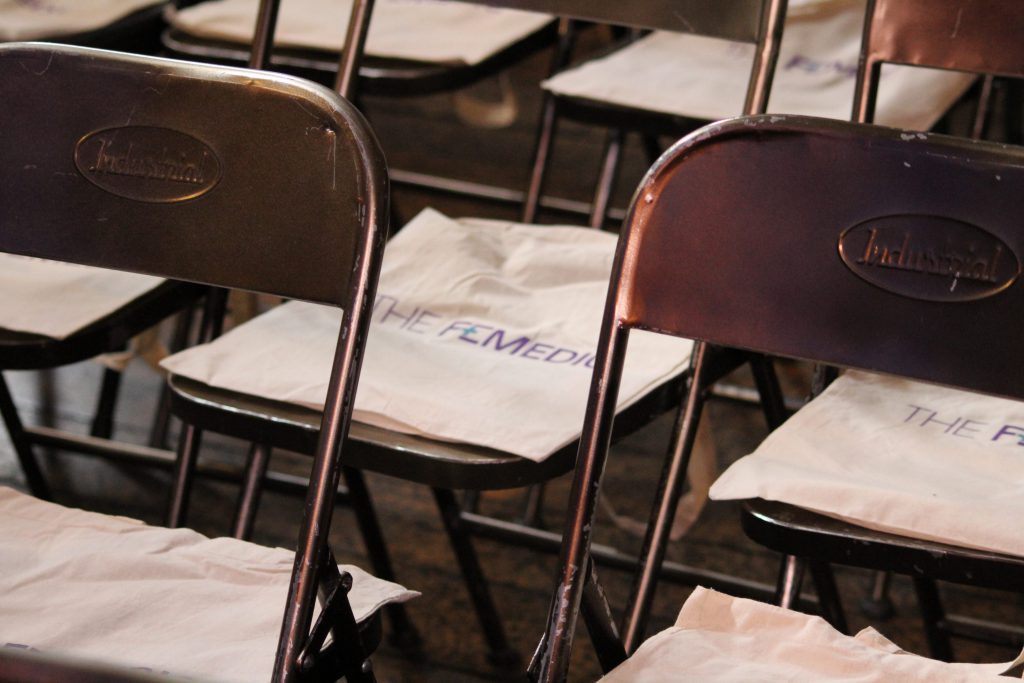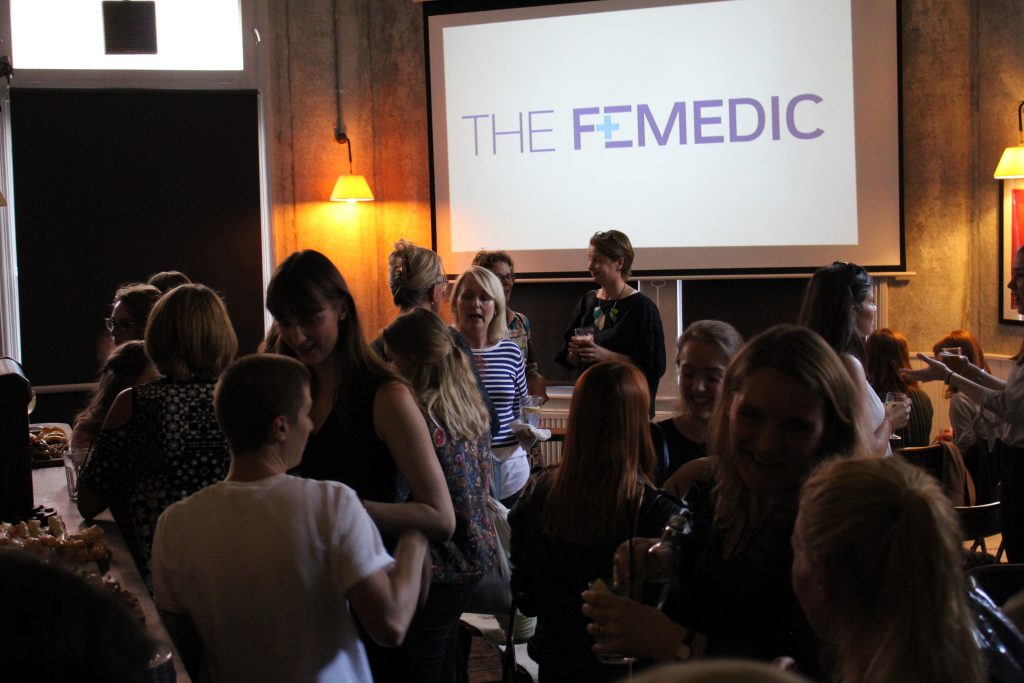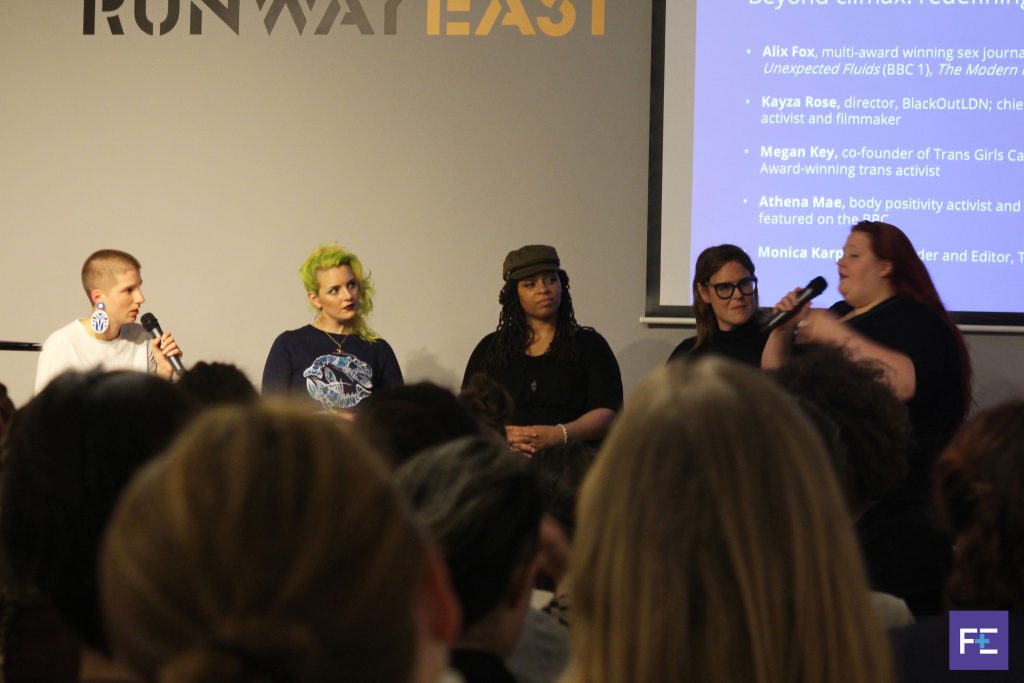The Femedic: Meet the startup normalising women’s health taboos
East London based startup, The Femedic, is changing the narrative around women’s health. Their holistic approach covers everything from mental health to contraception, and extends beyond that to consider discussions on gender, culture and identity.
By Rute Costa
Monica Karpinski is the founder of The Femedic, an educational website exploring aspects of women’s health that are considered taboo. The Femedic approaches health in a holistic way, offering readers medical perspectives on everything from mental health to contraception, and extending beyond that to consider discussions on gender, culture and identity.
Monica sits across from me in our office in East London. She arrived coffee-mug in hand but something tells me her source of energy can’t be pinned down to caffeine. When I ask Monica what prompted her to found The Femedic, it becomes clear where the liveliness and enthusiasm come from: her work. “Two main things impacted why I [founded The Femedic]. The first one was just absolute pure frustration at being a woman and having questions that were not being answered.” Monica explains she once made a mistake taking the contraceptive pill. “I was just absolutely livid for half a day, stressing out, I didn’t know what was going on with my body, I didn’t have any answers, I just needed someone to say: ‘this is what might happen, these are your options, here are your choices’. But no, absolutely nothing”, she recounts, frustrated. I feel as if most of the female population is behind me, nodding and thinking ‘this is very relatable content’.
“The other [reason] was: I’d run lots of projects in the women’s healthcare space and I knew there was an appetite for the kind of content I was creating”, Monica tells me. The Femedic has come to fill a gap in the kinds of content about female health that are currently available: the purely medical, fact-based, scientific website (like WebMD or the NHS website), or the lifestyle, women’s magazine advice column. Monica understands the legal and medical implications of publishing health resources online, but feels that “actually, health is much more than just science”. “What about lifestyle health advice?”, I ask. “I think that just comes from good old fashioned patriarchy, really. And capitalism: people cashing in, thinking ‘we can make women buy stuff, and feel good”, Monica says. The Femedic provides a solution in between: “an understanding of health as a holistic thing that affects all aspects of your life: your lifestyle, emotional state, cultural factors – anything that constitutes the broad picture of how your existence affects your health, and is affected by your health”.
“[The Femedic provides] an understanding of health as a holistic thing that affects all aspects of your life: your lifestyle, emotional state, cultural factors – anything that constitutes the broad picture of how your existence affects your health, and is affected by your health.”
The Femedic’s motto is “Normalising women’s health taboos”. They seek to empower women by making them better equipped with information to make decisions about their bodies. Social, cultural and economic factors stop women all over the world from sharing their health concerns, even with medical professionals. But silence has serious consequences. Monica explains: “When you first feel a symptom and start wondering ‘is this normal, what does this mean?’, if you feel you can’t communicate that, you are ultimately suffering in silence and you might feel that your body is abnormal, you might start to resent it, it may bring on anxiety”. On a broader level, silence perpetuates silence. If women don’t talk about their health, doctors and educational institutions may feel there is no demand for information on the subject, and women’s health remains underrepresented in culture and the media. It’s a vicious cycle of shame that The Femedic is trying to break.

Monica is adamant that “awareness is the most important thing”, and it is essential to cultivate an open space for discussion around women’s health. This will not only combat shame, it will also reveal how different groups of women are affected by the whole spectrum of elements surrounding their physical and mental wellbeing. The Femedic organises events with panel discussions “specifically to address social issues that affect health”. Their first was themed around austerity, exploring how the exacerbation of socioeconomic inequality affects women’s health and restricts access to healthcare. Their latest focused on “how the discussion on female pleasure is just about orgasm, and how that’s really damaging”, Monica tells me. “The idea is to raise awareness about the fact that so many things people encounter on their daily lives that they don’t think are health problems are actually health problems”.
The Femedic wants to give a platform to a variety of voices, different identities, and encourage women to become an “intersectional, unified force”. The articles are written by medical practitioners as well as journalists, and “people who’ve got experience with particular issues that aren’t covered by the mainstream”. Monica gives me an example: “I’m working with a sex worker at the moment to write a piece about the censorship of queer porn. You couldn’t tie that down to a medical issue, but it affects your identity, it affects your health”. In their events and partnerships, they are inclusive of minorities and keen to share “different experiences and discriminations”. The Femedic has worked with Naz, a charity working to improve access to sexual health amongst Black Asian Minority Ethnic communities. On a grassroots level, Monica highlights the importance of building “compassion for other women, raising awareness to help them”.
“The idea is to raise awareness about the fact that so many things people encounter on their daily lives that they don’t think are health problems are actually health problems”
I ask Monica how The Femedic has been received. “Really well. We’ve been around for about 9 months and in May we brought over 218,000 visits to the website, which is amazing. Sometimes we get people writing in to us and telling us their stories”, Monica tells me, smiling. In March, The Femedic had a stand at the Women of World Festival in Southbank, and stirred a high level of engagement. “Women were coming up to me telling me their stories, which I thought was really powerful. But then I also thought: if all it takes is a stranger with a sign saying ‘talk to me about your health’ [for women] to talk about it, how intense is this need for spaces to just speak?”

The Femedic’s future plans are shaped around addressing this need whilst growing the business to be sustainable. “I want us to grow really big”. Monica is aware of the challenges of taking her startup from pre-profit to profit stage, but not wary. Her energy is focused on developing The Femedic to benefit more and more women: “I want to be doing more events to engage with our audience offline, see what people respond to, and discuss social issues. As we go forward, I want us to be featuring more voices from groups that are particularly vulnerable”. Although Monica believes that the medical content is a crucial aspect of The Femedic, she is eager to build a richer resource that also explores “issue and identity-led elements tied to women’s health”. The ultimate dream, Monica reveals, is “to be doing some stuff in print as well”. She admits to having “a soft spot for print, even though everyone tells me it’s dying”. A biannual zine to diversify their medium of reach “would be really, really nice”, Monica says.
“The most exciting thing [about The Femedic] is to be able to do something that is actually meaningful”, Monica tells me, self-conscious of how “naff” it may sound. She means it though. Monica reveals that whilst working for The Femedic, “The energy of how good women are has struck me. I knew it already but it’s another thing to feel it”. She is keen to include and unite people in her mission to create awareness around women’s health, “with the purpose of making the world a bit better for women”.

Photo credits: The Femedic
